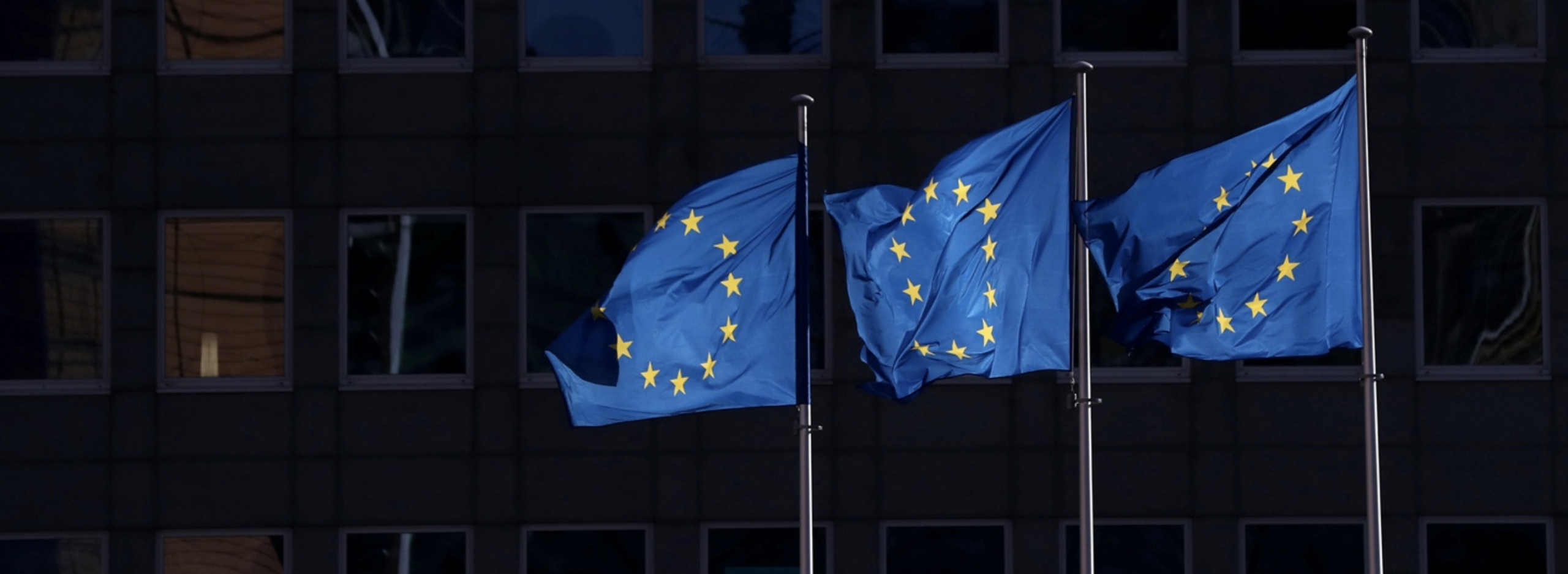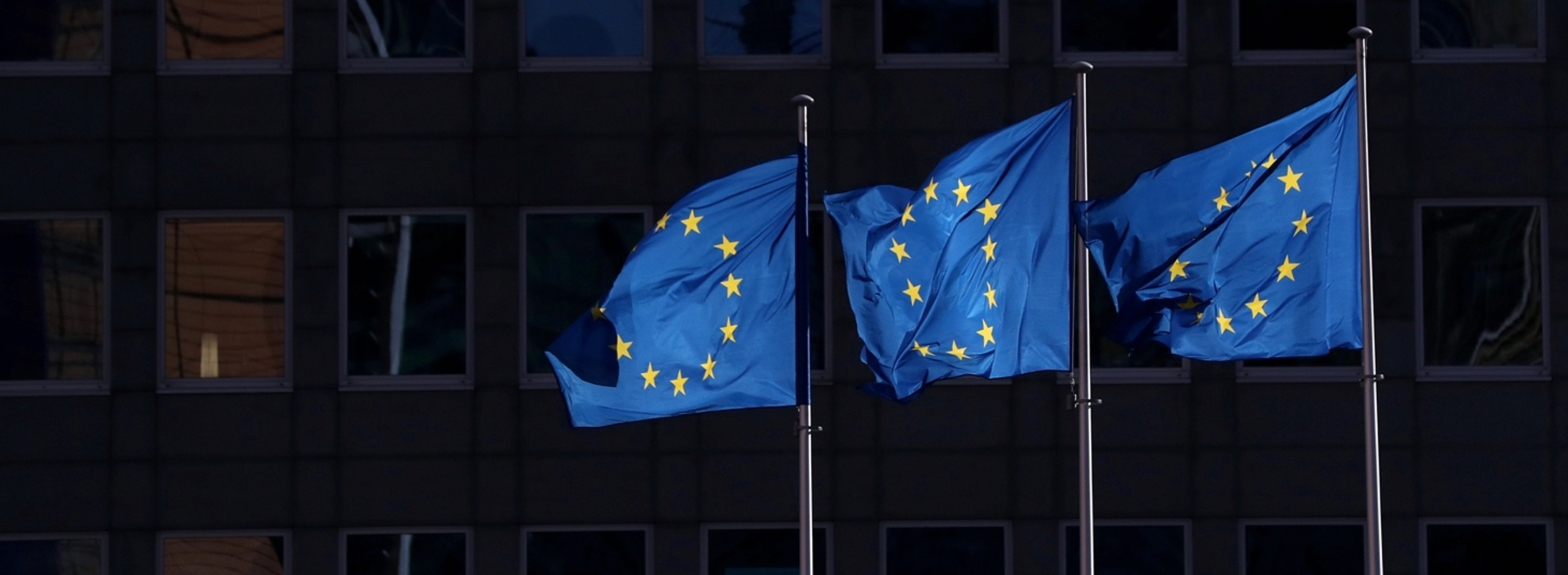Op-Ed: The European Union’s deficient response to COVID-19 disinformation
While E.U. officials apply pressure on
Op-Ed: The European Union’s deficient response to COVID-19 disinformation

While E.U. officials apply pressure on social media companies, the actors responsible for disinformation campaigns remain unchallenged

The COVID-19 pandemic has spurred disinformation campaigns by foreign actors eager to capitalize on a global crisis to expand their influence. How have the authorities in Brussels responded so far?
Unevenly. While the European Union has data about Russian disinformation, it lacks data about the campaigns of other actors, such as China. Furthermore, while E.U. authorities are increasingly applying pressure on social media companies, they are not visibility pushing back against the actors who produce disinformation, disseminate it, organize its spread, and benefit from it.
Regular reports on Russian disinformation are coming from the diplomatic service of the European Union, the European External Action Service (EEAS). The East StratCom Task Force and its EUvsDisinfo project (full disclosure: the author of this piece worked on this team from 2015 to 2018) produces the weekly Disinformation Review, which summarizes disinformation messages from pro-Kremlin outlets. The StratCom team also issued two special reports with the highlights of its monitoring and investigative journalists’ reporting on Russian disinformation operations. This data convincingly shows that Russian outlets are intensively focused on spreading disinformation on COVID-19, since at least the end of January.
The EEAS also produced an internal, non-public document that leaked to the media. According to Reuters, the document said that “[a] significant disinformation campaign by Russian state media and pro-Kremlin outlets regarding COVID-19 is ongoing,” and referred to the EUvsDisinfo project’s database of disinformation cases. Meanwhile, the European Commission issued a fact sheet that debunked some of the most repeated disinformation claims and encouraged readers to follow the advice of health authorities.
Apart from these documents, there are several public statements by high-level authorities; however, coordination behind the messaging is lacking.
The E.U.’s foreign minister, Head Representative and Vice President Josep Borrell, issued a statement in which he invoked “a global battle of narratives” and “a struggle for influence through spinning.” In the statement, he called out only China, not Russia, as an actor behind influence operations.
Several days later, another Vice President of the European Commission, Věra Jourová, gave an interview to the German newspaper BILD. Jourová did the inverse, calling out only Russian and pro-Kremlin outlets for spreading disinformation, but not mentioning Chinese actors.
The Commission’s President, Ursula von der Leyen, meanwhile, issued a statement saying that “those spreading disinformation harm you, disinformation can cost lives.” She stopped short of naming specific actors, however; and instead said that the European Union was working with online platforms and encouraging them to step up their action.
There are a few elements missing from the European Union’s overall response.
First, despite the EUvsDisinfo project, which focuses on Russian and pro-Kremlin actors, there is no systematic tracking of disinformation spread by other actors. In the case of COVID-19, especially, the Chinese disinformation campaign (which increasingly seems to mimic Russian tactics) would deserve much more attention. But when it comes to China, the special reports mentioned above seem to rely mainly on the work that had been done by other journalists and researchers. The European Union needs a dedicated team with Chinese speakers to track the propaganda of the communist regime.
Second, there seems to be no data about domestic actors spreading disinformation about COVID-19. Hungary’s Prime Minister Viktor Orban used the virus to spread xenophobia and blamed migrants and foreigners for spreading it. The commission’s fact sheet mentions that “Migrants are not bringing COVID-19 to Europe,” but it does not say that it is in fact one of Europe’s leading politicians spreading this disinformation.
The lack of data in Europe on the range of actors spreading disinformation, the influence these actors command, and the extent of their success is a concern that has been noted before. This data cannot be realistically expected to come from any other entity in Europe but from the European Union. The European Union, however, appears to lack the dedicated resources for its teams tracking disinformation, a problem that has been periodically highlighted in Brussels over the last few years.
Third, based on public statements, it appears the European Union is now primarily focused on putting pressure on the social media platforms, but not disinformation actors. Expecting that an exclusive focus on the former will solve the problem of disinformation is naive.
Social media platforms are just one of the channels through which disinformation spreads. Among some audiences, they are not particularly relevant in this regard. In some Central European states, pensioners who are largely absent from social media are much more exposed to disinformation disseminated via chain emails. The Russian-speaking minority in European countries consumes Russian-state media — which, as the EUvsDisinfo database shows, has been spreading disinformation about the virus on a daily basis.
As researchers regularly describe, Russia is also skillfully adapting to our defenses, learning to bypass the measures adopted by social media platforms to curb disinformation. As also happens frequently, when Russian-originated disinformation gets repeated by legitimate domestic opinion leaders and decisionmakers, it suddenly becomes noteworthy for mainstream media to report on it.
No amount of pressure on social media companies will solve the problem that disinformation is fundamentally multi-platform and easily travels across mediums — such as TV, print, online outlets, and peer-to-peer messaging platforms. The European Union should apply more pressure on those who produce disinformation as well as those who have built the disinformation-spreading structures, finance them, and regularly supply them with fresh disinformation stories. These actors abuse social media as just one of the many mediums available to them for disseminating disinformation.
Focusing attention on the social media platforms may create a future in which Facebook and Twitter are not as important or effective in spreading disinformation as they are now. But that development will not stop disinformation actors, who will be compelled to adapt to changes in the information environment. The European Union’s leadership has rightly pointed out that those who spread disinformation harm E.U. citizens. It should take decisive actions against those actors — namely, Russia and China. Otherwise, not only will information aggressors succeed, but their current successes will spur other potential aggressors into action.
Jakub Kalenský is Senior Fellow with the Digital Forensic Research Lab.
Follow along for more in-depth analysis from our #DigitalSherlocks.

